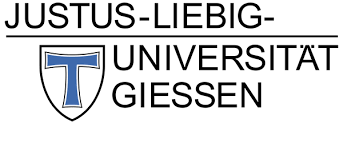Second INSA workshop in Kenya

The second INSA workshop, held in Nairobi and Wundanyi, Kenya, in November 2023, focused on hydrological and gaseous fluxes of nitrogen in different systems in Africa. It brought together more than 35 people, including representatives of the INSA consortium, researchers, lecturers and students from Kenyan and other African and European universities, as well as stakeholders from 4 different organisations (The Lake Victoria Basin Commission, Pastoralisme Conseil (PASTOC), Kenya Agriculture and Livestock Research Organization (KALRO), and the Kenyan Forest Research Institute (KEFRI)).
The workshop included presentations on riverine nitrogen and other water tower systems, manure management and livestock, fertilizer management, atmospheric deposition, nitrogen budgeting, as well as sessions on applying lessons learned to home regions, stakeholder engagement, field trips, and science popularisation. The aim was to share knowledge using a variety of methods, and facilitate discussions and debates about nitrogen management in different African ecosystems. A full list of presentations can be found below.

The first day was held at the International Livestock Research Institute (ILRI) in Nairobi, and included a visit to the Mazingira Centre (https://www.ilri.org/research/facilities/mazingira-centre) to learn about the different devices used to measure greenhouse gas emissions from manure, livestock and soils.
The second part of the workshop was held in Wundanyi, at the Taita Research Station run by the University of Helsinki. The Taita Hills water tower system offers a rare opportunity to study a range of systems in one location. To take advantage of this unique region, two fieldtrips were organized. The first took participants to a valley-bottom wetland, where two students of Gretchen Gettel’s team (IHE), Sharon Gubamwoyo (PhD student) and Damaris Khisa (Masters student), gave talks on nitrogen management and transformation of wetlands, and related effects on greenhouse gas emissions. This was followed by a walk in Ngangao forest where there are studies underway to understand the impact of land use change on climate and ecosystem services in the Afromontane landscape of Taita Hills (presentation by Petri Pellikka, director of the Taita Research station, Univ. Helsinki).
The second field visit took place in Lumo Wildlife Conservancy. The objective was to talk about N2O emissions from bomas (enclosures where livestock are kept during the night) and from water pans, where wild animals and livestock come to drink. Presentations were given by Mwadime Mjomba, research manager of the Taita Research station, and Oswald Omuron, a PhD student in Gretchen Gettel’s team (IHE).

Finally, an INSA workshop wouldn’t be complete without an interactive session from Les Petit.te.s Débroullards Occitanie (APDOC), a French non-for-profit organization specializing in science facilitation and communication. This year, APDOC facilitators Zoé Buillard and Etienne Rousée led a session in which participants were invited to imagine an ideal project to integrate N studies at the landscape scale. This particular exercise encouraged scientists working on different aspects of the N cycle to share their experience and expertise, for example in aquatic systems or in the atmosphere, and in Western or Eastern Africa. The objective was to generate possible future collaborations between researchers.
The network of scientists, students and stakeholders built within the INSA project is growing and strengthening thanks to events such as this second successful workshop. This network will continue to thrive beyond the end of the INSA project (January 2025), and the coordination team are committed to enriching this network through other projects in the future.
List of Scientific Presentations
- Sustainable Livestock Systems, Anthony Whitbread (ILRI)
- The state of nitrogen in rivers and streams across sub-Saharan Africa, Suzanne Jacobs (JLU)
- Manure management and N fluxes, Klaus Butterbach-Bahl (KIT/Aarhus University)
- In crop-livestock production systems, the livestock carbon balance is neutral thanks to the
- recycling of Nitrogen and Phosphorus by the animals, Pierre Hiernaux (PASTOC)
- Nitrogen losses from manure management in East African rangelands & mixed systems, Yuhao Zhu (ILRI)
- Impact of biochar and charcoal addition on N2O and NH3 emissions from livestock manure, Ludy Keino (ILRI)
- High-resolution water quality monitoring in the Mau Forest, Kenya, Tobias Houska (JLU)
- Smartphone technology for better nitrogen fertiliser management, Karolina Golicz (JLU)
- Water and Nutrient Flows in Catchment – NANI budget approach, Gretchen Gettel (IHE Delft/Aarhus University)
- Tracking nitrates in River Kagera using hydrochemistry and isotopic techniques, Catherine Mathenge (IITA/University of Nairobi)
- Nitrogen atmospheric deposition budget in Africa, Money Ossohou (UFHB)
- Biogeochemical recovery of Afrotropical secondary forests in the Democratic Republic of the Congo, Viktor Van der Velde (UGent)
- Environmental and biodiversity impacts, Hilda Luoga (Lake Victoria Basin Comission)
- Forest fragmentation: Impact on tree species distribution and soils in Taita Hills, Chemuku Wekesa (KEFRI)
Poster Presentations
- Regional budget in the Lake Victoria Basin, Adama Bakayoko (UFHB)
- Study of the atmospheric nitrogen cycle over Africa based on regional climate chemistry modelling, Eric Yao (UJLoG)
- Long-term measurement of O3 concentrations and NOx precursors in semi-natural African ecosystems, Venance Donnou (Abomey-Calavi University)
- CongoFlux: The Yangambi climate station in the central Congo Basin, Viktor Van der Velde (UGent)



















